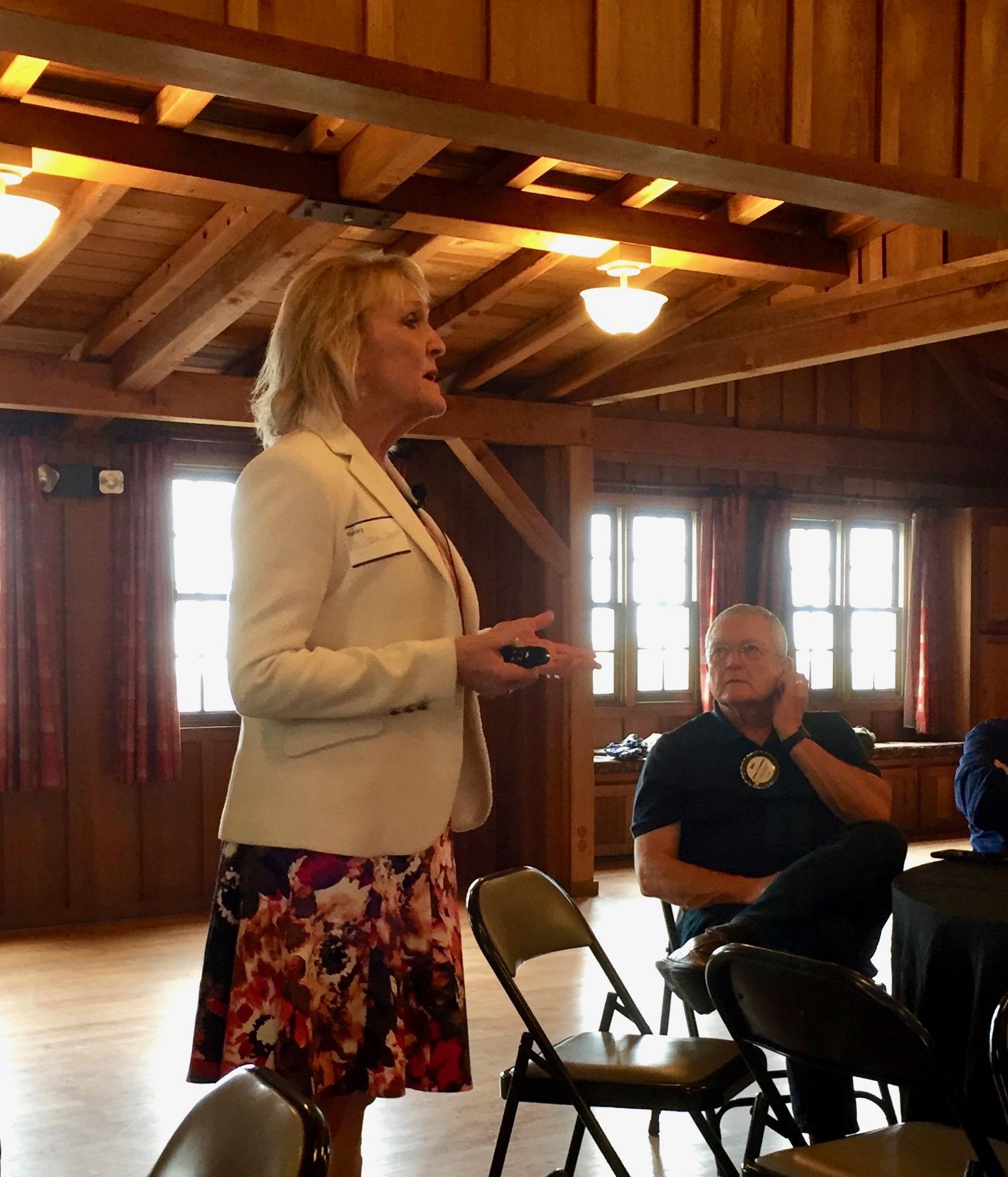
Debra Dupree speaks about resolving workplace conflicts
Dr. Debra Dupree visited our club on March 22, 2018 to give a presentation on strategies for effective management of conflicts in the workplace. She began by contrasting the traditional view of “Transactional Leadership”, which largely links rewards to effort, with “Transformational Leadership”, in which leaders motivate their team members by arousing emotions and changing attitudes that together contribute to the overall success of the organization.
Dr. Dupree echoed points raised by Dr. Brian Alman, who also spoke at our club on March 1, 2018, that stress is a major factor in workplace conflict, and this stress can manifest as physical problems, including headaches, anxiety and depression. Many of our adult interactions are influenced by our childhood experiences. Dr. Dupree told the story of her father, who, like his father, sold dairy cattle in the Midwest. Her father was outgoing and enjoyed interacting with his clients. On the other hand, her grandfather was gruff and introverted, which led to conflicts between father and son that were never resolved. This dynamic laid the groundwork for Dr. Dupree’s interest in psychology and particularly interactions between people and how they can be improved to reduce conflict.
Awareness of both self and presence (Dr. Dupree gave an example of a client who was a hotel manager who often went about the property with an angry look- was it a surprise that his employees avoided contact with him?), together with authenticity, connection and effective expression are critical to moving toward effective transformational leadership.
Dr. Dupree also emphasized the importance of active listening to resolving workplace conflicts.
To be a more effective listener she suggested that we listen to the “sounds” of the BEACH: Beliefs, Expectations, Assumptions/Attitudes, Concerns/Challenges, and Hopes and consider these points as we listen to what the other person is saying. Another trick to remember for active listening: “silent” is an anagram of “listen”, and for effective listening we must be silent, not only in our words, but in formulating what we’re going to say in response.
Active listening, together with a greater sense of self-awareness and presence can contribute to a workplace environment where conflicts are managed effectively, which in turn can increase productivity and decrease employee turnover. But overall, Dr. Dupree encouraged the practice of kindness for lessening the negative effects of workplace conflicts. She quoted Mark Twain: “Kindness is the language which the deaf can hear and the blind can see.”